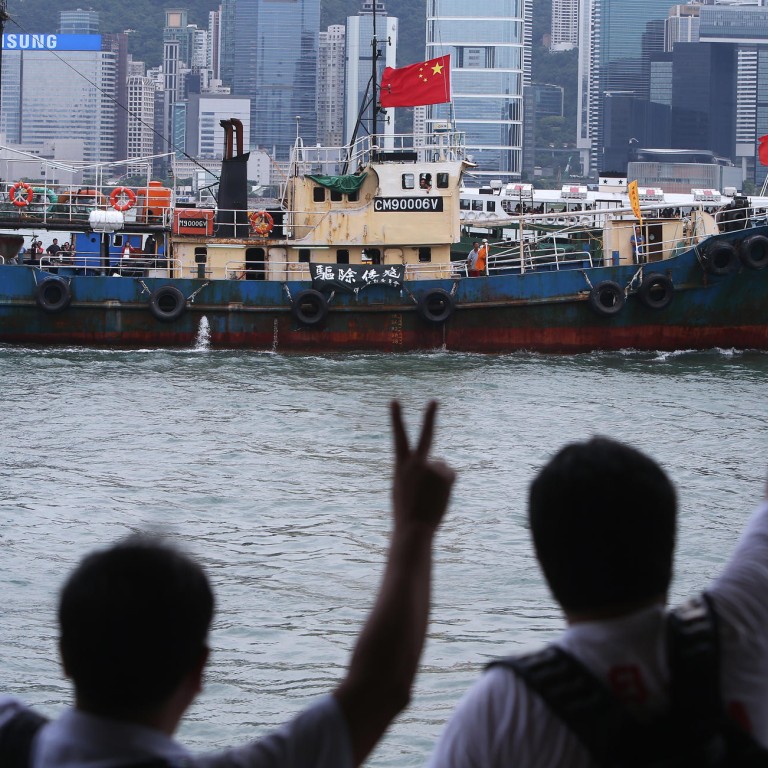
Hong Kong's Diaoyu activists plan to sue Japanese government
Group looks at seeking compensation over arrests last week on the disputed islands
Hong Kong's Diaoyu activists plan to sue the Japanese government for illegally arresting eight protesters involved in last week's expedition to the disputed islands.
Chan Yue-nam, vice-chairman of the Hong Kong-based Action Committee for Defending the Diaoyu Islands, also said yesterday that they planned to call on Beijing to address the Japanese government directly about their treatment.
Chan revealed the two-pronged attack during a radio interview. He said the group was talking to lawyers about suing for "some compensation, because they captured [our activists] and took them to Japan".
Activists who sailed on the fishing boat Kai Fung No2 planted the Chinese flag on one of the islands on Wednesday last week - some 16 years after another group of activists carried out a similar stunt after setting sail from Hong Kong.
This time round, the eight protesters who planted the flag were arrested, and all 14 members of the party were deported last Friday.
Seven members returned by plane, while the remaining activists sailed home, arriving to a heroes' welcome on Wednesday.
Chan was one of the activists on that first expedition in 1996 when the flags of both the mainland and Taiwan were raised. He stayed behind in Hong Kong this time to co-ordinate the latest expedition.
Reflecting on the group's 11-day voyage to assert Chinese sovereignty, the captain of the Kai Fung No2, 45-year-old Yeung Hong, said he believed that they had done their job. "Defending the Diaoyus is a movement of the masses," Yeung said in the same radio interview.
"Do not expect to reclaim a piece of [Chinese] territory because [the movement] might be only for inspiring discussion, and forcing the authorities to face the issue. If [our] action pushes the movement forward, I think we have done our job."
The return journey from the Diaoyu Islands, however, served to remind him of their limitations as activists and the sensitivity of sovereignty issues.
While he was steering the vessel through Chinese waters, he tried to take a short cut through some uninhabited Taiwanese reefs.
"As soon as I tried to cross [through the reefs], Taiwanese customs asked us to stay with our 'fleet' … because we were being escorted by [mainland] Chinese official vessels, which stayed in Chinese waters.
"When I told them I would consider their request, they said it was not a matter for consideration. We must leave instantly."
Yeung said it was common practice for Hong Kong fishing boats to pass through "non-sensitive" Taiwanese waters without prior notice, but mainland vessels were strictly forbidden.

